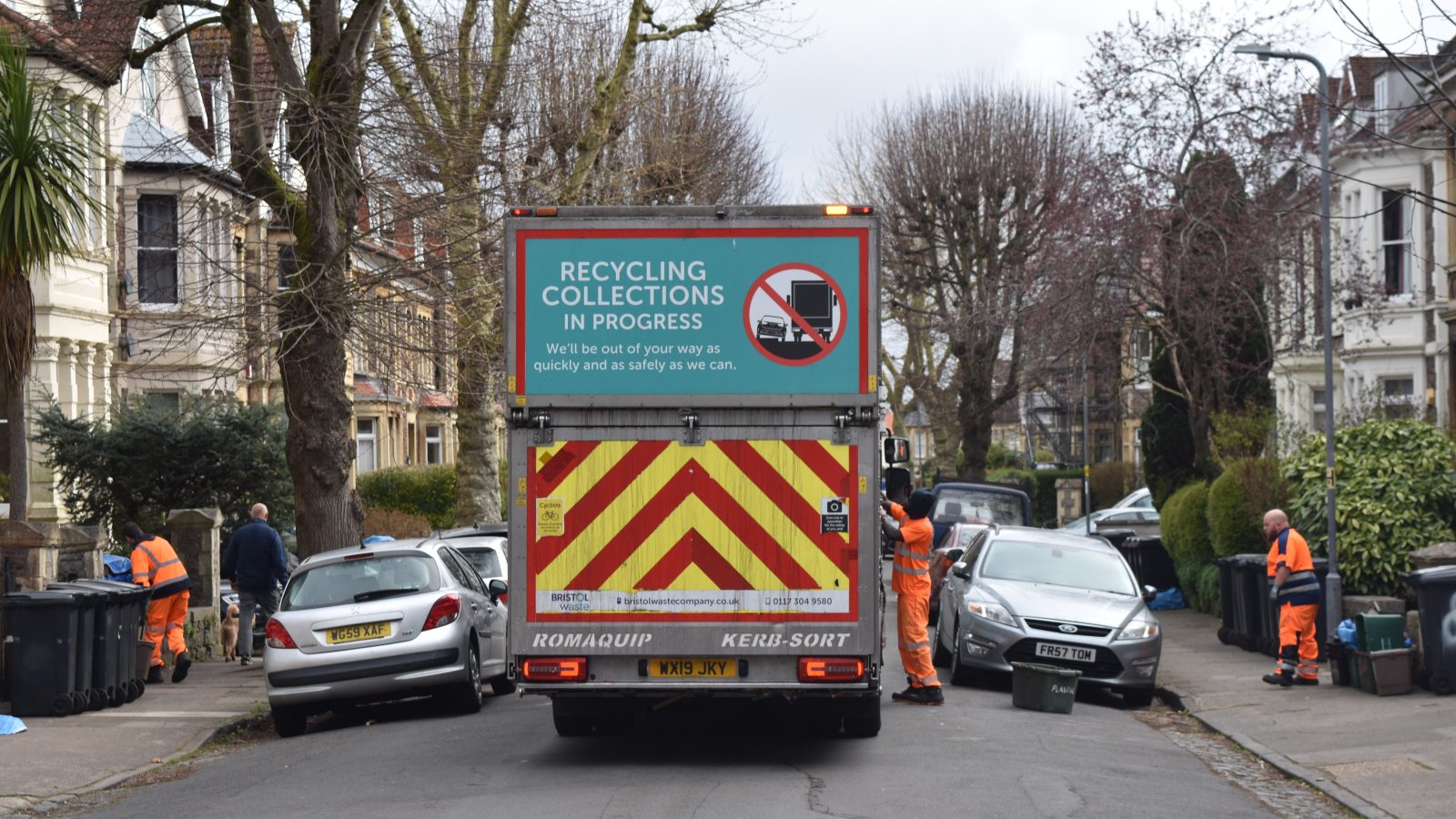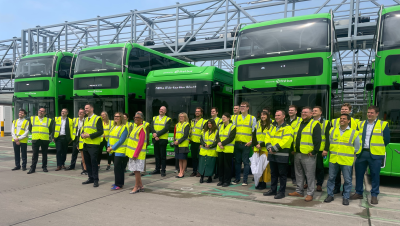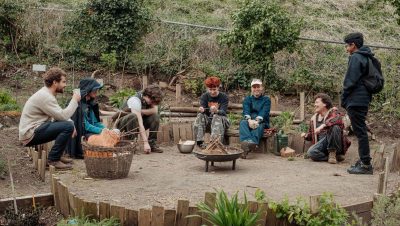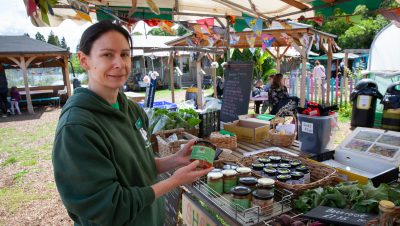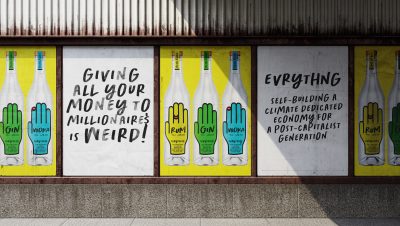Features / recycling
Closing the loop: What’s beyond the brown bin?
I’m clutching a coffee when we meet the recycling truck at 8am. The crew has been up and at it for three hours already.
By the time they finish their shift, at 1-2pm-ish, they’ll have done around 750 collections, often dealing with broken bins and shards of glass, impatient drivers sometimes mounting the pavement to get round them and unsorted boxes that can – “reasonably frequently” according to my Bristol Waste chaperone Hannah Deas – cause truck fires.
“What puzzles me most is the bags and boxes have clear instructions on,” says longstanding crew member Stuart Cassidy. “It’s the simplest thing in life!”
is needed now More than ever
“It’s just common sense,” says Kelvin Hawkes. “It is so hard to change people’s attitudes. But they have a week, we have 30 seconds to pick up each box.”
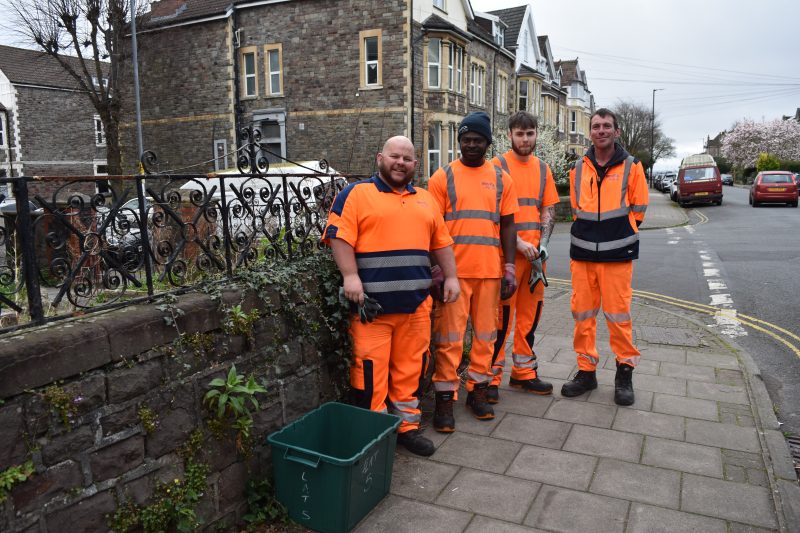
Recycling crews meet at 5am to hit the road at 6am and do around 750 collections in a shift. I met (l-r) Kelvin Hawkes, Richard Boateng, Joseph Belston and Stuart Cassidy
Well sorted boxes are quicker and safer to load on to the trucks which constitute high-tech bits of kit, with moving compartments that compress materials to increase capacity and are eventually lifted out by forklift for further sorting at the St Philip’s waste transfer station – a “smelly Willy Wonka’s Factory” as Hannah describes it.
Bristol leads England’s core cities in recycling rates, processing over 40,000 tonnes – around 30 Clifton Suspension Bridges – of reusable materials each year.
And it’s not solely for environmental benefit: the council makes money from selling recyclables, while processing black bin waste actually costs the city money.
The difference between general waste and recycling last year, Hannah tells me, was around £340 per tonne, amounting to huge potential funding for additional street cleaners or other council services should the pendulum swing further in the direction of recyclables.
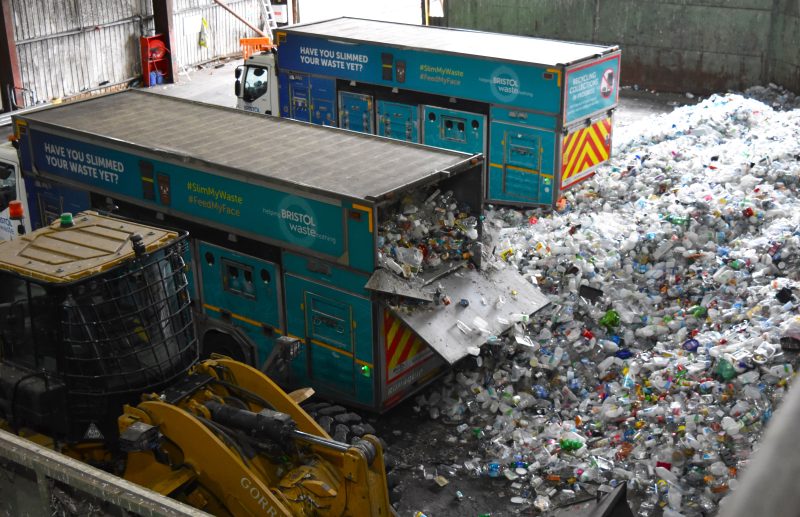
Only 1 per cent of Bristol’s waste goes to landfill; the rest of the rubbish that can’t be recycled is converted into energy that is used to heat and power homes
Hard hat on at the transfer station, I’m shown around by Chargehand Jordan Cox who oversees operations. He has a real job on his hands: the sheer volume of material and quantity of people involved is breathtaking.
Mountains of items collect in the warehouse, before being pushed on to a conveyor belt that circumnavigates the room with magnets, filters and magic gadgets sorting and squashing them into tightly packed bales. These are dropped into sheds or straight onto a lorry to be taken for reprocessing.
85 per cent of Bristol’s recycling is processed within the UK; cardboard is most often sent to Europe as UK mills cannot cope with demand, though one is due to open in North Wales which will create opportunities for local closed-loop recycling, building pulp back into card and corrugated products.
Environment fans might want to swap Lucozade for Lilt: aluminium can be reused infinitely, whereas plastic can only be recycled seven times before it degrades to an unusable state.
20 per cent of the plastic picked up from kerbside goes directly back into creating new food containers, the rest into products like furniture and decking. Glass is melted down and usually returned to bottles or jars.
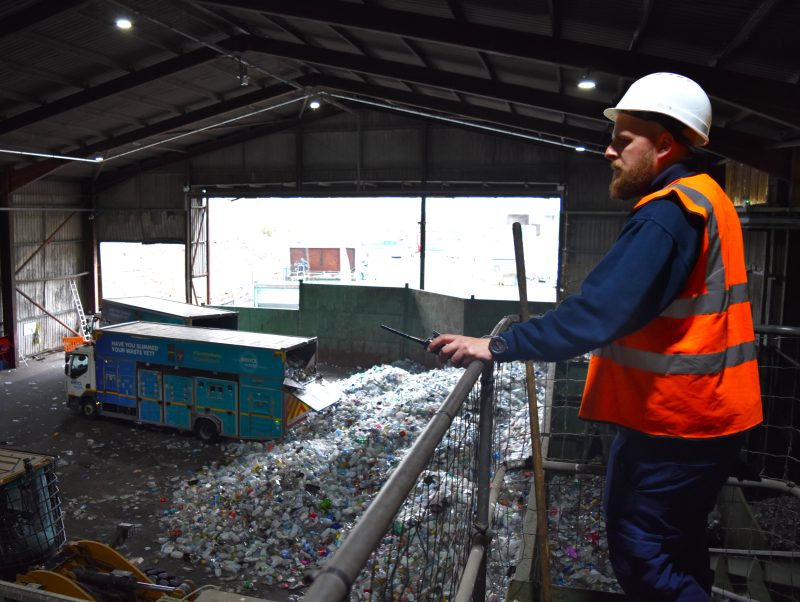
Jordan Cox oversees operations at the recycling centre warehouse; the items are pushed up on to a huge conveyor belt and squashed into tightly packed bales. Glass fragments in the baler can lead to fires which shut down the whole site
Looking out the onsite office window, Bristol Waste colleagues can see the recycling operation in action.
Paul Walsingham, marketing sales manager, keeps an eye on the markets to make sure Bristol gets the best price for its recyclables which, he says, are in high demand: “Our steel and aluminium is of a certain quality.
“Because it’s cleaned and segregated by households, then goes through processing in our recycling shed, it’s a really clean material which smelters like.”
Glass is the same: “It sets a higher precedent than the rest of the market. It’s deemed to be that slight cut above.”
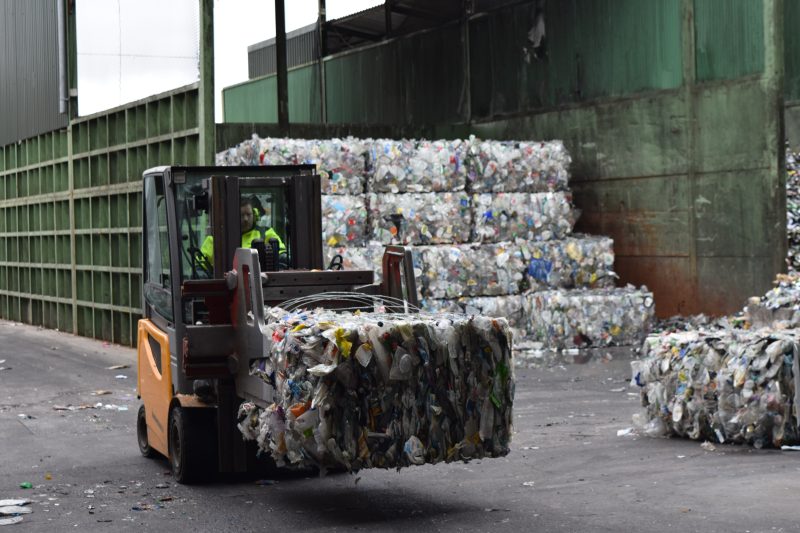
The bales of squashed recyclables are stored in vast warehouses or placed onto lorries to be taken for reprocessing into new items
Food waste is sent to a local anaerobic digestor where it’s turned into biogas, used to generate renewable electricity or feed the gas grid, and soil-enhancing ‘cake’, a fertiliser alternative used by farmers.
Sustainability manager Sarah Burns tells me that 40 per cent of what is put in the black bin could be recycled; 25 per cent is largely avoidable food waste – unopened packets and bagged salad rather than peels and eggshells – which costs a family of four roughly £1000 per year, as well as adding costs to the council’s waste bill.
To tackle the issue the company launched the Waste Nothing challenge which provides tips on reducing household food waste.
“It helps keep the streets clean and saves the city money if we recycle more and waste less,” says Sarah, simply.
“It’s better for the planet as well, we’re living in a climate emergency and reusing or recycling is keeping products in circulation so we don’t have to extract raw materials through mining or other impactful methods.
“It’s not just the glass, it’s all the processes that had to happen to turn it into that glass bottle.”
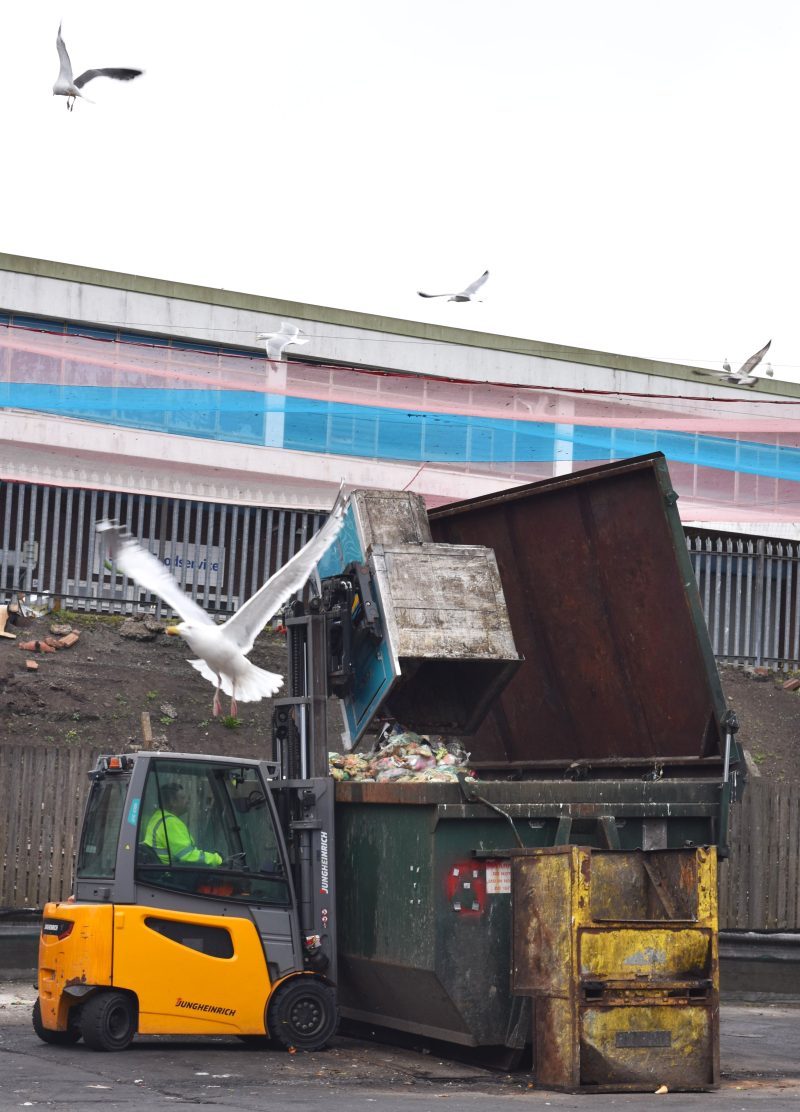
12. Food waste is used to produce biogas and soil improver. 25 per cent of black bin contents is food waste that could have been used or recycled
Innovations in waste are coming thick and fast. A nappy recycling scheme Bristol Waste launched with Pura last year was immediately oversubscribed: the 250,000 nappies collected so far have been turned into materials for noticeboards, roads and cycle paths.
In The Loop recycling bins installed round the Harbourside and along East Street in Bedminster have been positively received.
Simpler Recycling, a government scheme to be implemented in 2027, will introduce soft plastics recycling and a deposit return scheme for drinks containers.
And a new transfer station is due to open in Avonmouth that will increase Bristol’s recycling capacity and reduce driving distances for crews collecting in North Bristol.
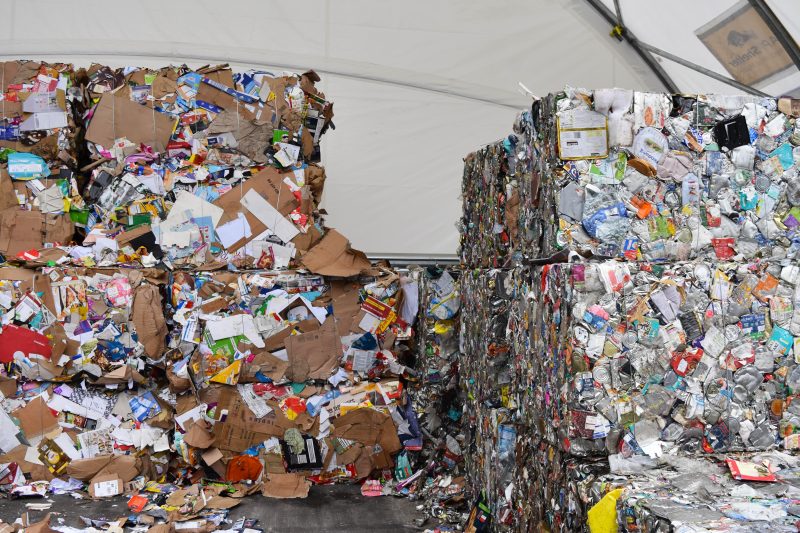
The transfer station is full of warehouses packed with bales ready to be taken for reprocessing back into usable materials
Hannah wants people to know the extra five minutes it takes to clean out cans and squash cardboard is worthwhile.
“It’s as long as it takes the kettle to boil!” she says. “We all put our shoes on in the morning and we manage it. We’re a very wasteful species, anything we can do to reduce our negative environmental impact on the planet is amazing. And this is such an achievable win.”
“There’s always more that can be done,” says Paul, “but where we sit right now, we can be proud of what we are doing.”
All images: Ursula Billington
Read next:
 Our newsletters emailed directly to you
Our newsletters emailed directly to you